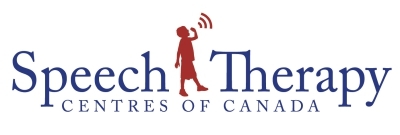Do you ever wonder why your Speech-language pathologist recommends your child attend group therapy to supplement their individual speech therapy sessions?
Strong social communication skills are one of the most important aspects children learn in order to develop and maintain friendships. Communication needs to be considered in the context of the dynamic interaction that occurs between speaker and listener. In plain language, this means how a child interacts with others one-on-one, in groups, and on the school playground and beyond.
While it is important to get one-on-one support for communication issues, it’s essential to find ways to apply the learning in a managed environment like group therapy. It can be more difficult to practice certain interactions when it’s just the therapist and child. So mastering and transferring goals into the types of real world activities that can be found in therapy groups helps the learner to practice in a realistic setting with their peer group while still gaining the benefit of supervision and guidance.
This is why group therapy is included—and often recommended— by Speech-language pathologists as an important element of the treatment options for language development and social communication.
Groups offer a wonderful opportunity for children to use what they’ve learned about social communication in a real-world modeled environment. It is in the context of these groups that children learn and apply many important skills that will help them communicate with others, gain confidence, and make friends too.
There are many components of social communication that can be practiced effectively in a group therapy situation.
Social interactions
- Being aware of cultural inferences e.g. identifying and understanding cultural differences in communication partners
- Manners and politeness e.g.greeting people, proper turn-taking, listening, asking appropriate questions
- Cooperative play
Verbal Communication
- Making requests and adding comments
- Correct use of one’s voice e.g. not shouting or using too soft a voice, sarcastic tone
- Appropriate turn taking e.g. not saying turn much or too little
Non-verbal communication
- Eye contact
- Use of appropriate gestures
- Theory of Mind which means the ability to understand that others have knowledge, desires and emotions that are different from one’s own.
This list is an example of the types of social and communication skills that can be addressed in a group situation. Learning about social communication is a complex process that involves social skills, understanding, intuitiveness, modelling and more.
Working on developing the language and social communication skills that are key for forming successful social relationships is the goal of Speech-language Group therapy for children. It should be fun and play-based, involving stories, games, and structured activities. The groups should be carefully formed by age and developmental ability to ensure that each child benefits from the time.
To learn more about how group therapy can help your child or to book a spot in one of our upcoming 6-week programs, contact us today.
For our spring 2016 social communication groups for children and teens click here.
